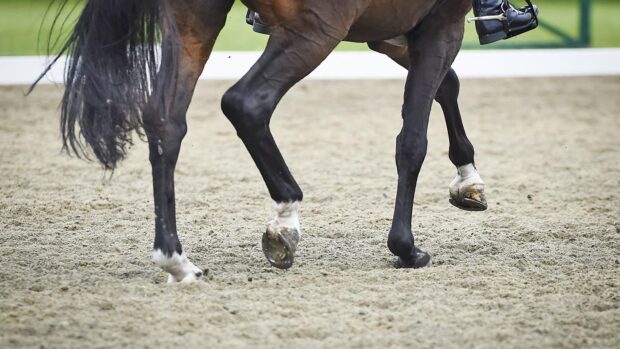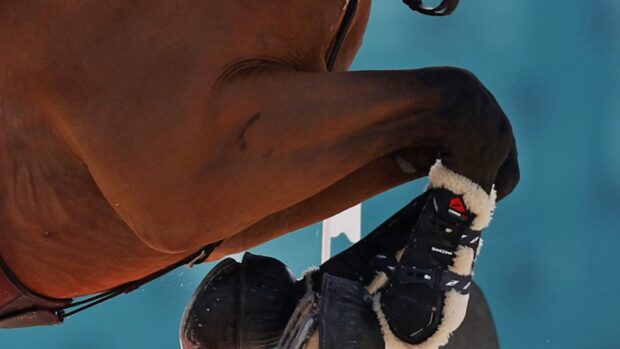French eventer Maxime Livio has appealed to the Court of Arbitration for Sport (CAS) against the length of his ban – six months – after his horse failed a drugs test last year.
Qalao Des Mers tested positive for the sedative acepromazine (ACP) on the dressage day at the World Equestrian Games (WEG) last summer (29 August). Last month the French eventing team was disqualified — meaning they also lost their Olympic qualification — due to the positive test.
A six-month suspension was then issued to Maxime, which came into effect on 7 May.
He was also fined SFR 2,500 (£1,760) and ordered to contribute towards the costs of the judicial procedure.
ACP is a controlled medication, meaning it is often used to treat horses, but is not allowed in competition.
Maxime, who has issued a statement saying the circumstances did not warrant the maximum ban of six months, argued that he did not “bear any fault or negligence” for the positive finding.
He said that the low levels of ACP detected were not consistent with the amount normally given to have a calming effect for a specific purpose.
He said there was the possibility of “sabotage” and that people were jealous of his success.
But the FEI Tribunal said it was inconsistent for Maxime to argue that he could not enter the WEG stables overnight because of security, if he was alleging that an unknown person had managed to do so. He also failed to produce copies of threatening letters he claimed had been received after the event.
The Tribunal said: “In the absence of any other explanation, the Tribunal holds that the person responsible has not established how the ACP entered the horse’s system”.
Last month a separate case involving Maxime was dropped by the FEI when the B sample from Bingo S, his catch ride at a Thai show jumping event last year, tested negative for testosterone.
The CAS reduced the length of a rider ban two years ago, but the circumstances were unusual. It was found that the signature of endurance rider Rashed Al Abbar had been faked on paperwork by the UAE federation, denying him the right to a full hearing in an earlier case.




